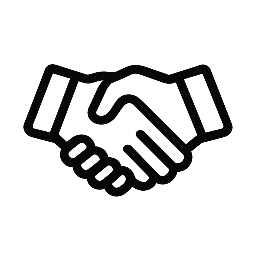ABP-073 I Will Be Like Without Permission Dirty Apartment Of My Water Bloom Roller.
The phrase "ABP-073 I Will Be Like Without Permission Dirty Apartment Of My Water Bloom Roller" presents a complex and layered title that invites exploration into its various thematic elements. Although seemingly disjointed, each component hints at a narrative rich with symbolism, emotional undertones, and a setting that contributes to its overall meaning. This article aims to dissect the title’s different parts, providing an in-depth analysis to better understand its possible interpretations and the themes it encompasses. Through a structured approach, we will explore the main themes, symbolic elements, and the atmosphere suggested by this intriguing phrase.
Overview of ABP-073 and Its Main Themes
ABP-073 appears to be a code or identifier, possibly referencing a specific work, project, or piece of media. In many contexts, such codes are used to catalog content, whether in film, literature, or art collections. The inclusion of "ABP-073" suggests that the piece is part of a series or a collection, which may influence its thematic focus. The main themes of this title seem to revolve around notions of identity, permission, personal boundaries, and the environment one inhabits. The phrase hints at a narrative that explores the tension between individual agency and restrictions imposed either externally or internally.
Furthermore, the phrase "I Will Be Like" indicates a desire or aspiration to emulate or transform into something or someone. This theme of aspiration or transformation is central to understanding the narrative’s emotional core. It hints at a journey of self-discovery, possibly involving rebellion against authority or societal expectations. The themes of permission and boundaries emerge as crucial elements, raising questions about autonomy and the limits of personal freedom in the context of the environment or circumstances depicted.
The thematic focus might also extend into explorations of chaos and order, especially considering the mention of a "dirty apartment," which suggests disorder and neglect. Such a setting could symbolize internal states, societal decay, or a phase of transition. The main themes could thus encompass self-identity amid chaos, the struggle for independence, and the desire to redefine oneself against a backdrop of disorder.
Additionally, the phrase could be interpreted as a commentary on personal space and privacy. The act of asserting oneself ("I Will Be Like") without permission could reflect broader societal issues about authority, consent, and the boundaries of personal domains. Overall, ABP-073 appears to encapsulate a complex interplay of personal aspirations, societal constraints, and environmental influences, forming a rich thematic tapestry.
Exploring the Concept of "I Will Be Like" in the Context
The phrase "I Will Be Like" serves as a pivotal element in understanding the underlying message of the title. It suggests a future-oriented declaration, indicating the speaker’s intent to emulate, transform into, or embody certain qualities or identities. This phrase often reflects aspiration, determination, or a desire for change, which can be both empowering and rebellious in nature. In the context of this title, it may imply a resolve to become something different from the current state or to adopt a new persona.
This concept of "being like" can also evoke themes of imitation, aspiration, or even mimicry. It raises questions about the identity the speaker wishes to forge or the ideal they aspire to reach. Is it a positive transformation, such as becoming more independent or authentic? Or is it a rebellious act, asserting oneself against imposed restrictions? The ambiguity invites the reader to consider the motivations behind this declaration and the emotional drive fueling it.
In a broader sense, "I Will Be Like" could symbolize a quest for self-actualization within a challenging environment. It embodies the human tendency to seek growth and change despite obstacles. The phrase may also reflect a longing to break free from limitations—be they societal, environmental, or personal—and to carve out a space where one can truly be oneself. The context suggests that this transformation is not straightforward but intertwined with the circumstances described in the rest of the title.
Furthermore, this phrase emphasizes agency and choice. It indicates that the individual is actively deciding to pursue a new identity or state of being. This sense of agency is critical in understanding the narrative’s emotional tone—possibly one of resilience or defiance. It suggests that even in a setting marked by disorder and restrictions, the desire to "be like" something or someone remains a powerful motivator for change and self-expression.
Overall, "I Will Be Like" encapsulates themes of aspiration, transformation, and the quest for authenticity. It invites reflection on how individuals seek to define themselves amid external and internal challenges, emphasizing the importance of agency in personal evolution.
The Significance of a "Without Permission" Scenario in the Narrative
The phrase "without permission" introduces a critical element of autonomy and boundary-crossing within the narrative. It implies that the actions or desires expressed—such as becoming like something or someone—are undertaken outside the sanctioned or accepted limits. This detail suggests themes of rebellion, defiance, or perhaps clandestine pursuit of self-identity, highlighting a tension between individual agency and external control.
In many narratives, acting "without permission" signifies a break from authority, societal norms, or personal restrictions. It can serve as a catalyst for character development, illustrating a pivotal moment of assertion or independence. The phrase might also evoke feelings of risk, danger, or transgression, emphasizing that the actions taken are not sanctioned, and thus carry potential consequences. This adds a layer of complexity to the narrative, emphasizing the stakes involved in the protagonist’s journey.
The "without permission" scenario can also reflect internal conflicts—such as the struggle between conformity and individuality. It raises questions about the reasons behind acting without approval: Is it driven by necessity, rebellion, or a desire for authenticity? In the context of the title, it suggests a deliberate choice to pursue personal transformation despite potential repercussions or societal disapproval. This underscores themes of courage and self-determination.
Moreover, this phrase may symbolize broader themes of privacy and personal boundaries. It hints at the idea that certain aspects of identity or change are personal and must be pursued privately, outside the constraints of external authority. It can evoke feelings of clandestine exploration, secret ambitions, or suppressed desires that seek expression in defiance of restrictions. This element enriches the narrative by adding tension and highlighting the importance of self-ownership.
In sum, "without permission" signifies a bold, possibly rebellious act that underscores the protagonist’s desire for autonomy and self-definition. It emphasizes the importance of personal agency and the complex interplay between individual desires and external constraints within the story.
Describing the "Dirty Apartment" Setting and Its Atmosphere
The "dirty apartment" setting conjures an environment characterized by neglect, disorder, and perhaps emotional or psychological turmoil. Such a space often symbolizes a state of chaos or disarray, reflecting the internal struggles of the characters or the societal conditions surrounding them. The description of the apartment as "dirty" immediately evokes a sense of neglect, decay, and imperfection, setting a tone that is raw and unpolished.
This environment can serve as a powerful backdrop to the narrative, emphasizing themes of abandonment, neglect, or a transitional phase. It may symbolize a personal or collective space where chaos reigns, and order has broken down. The disarray could mirror the protagonist’s internal state—confusion, frustration, or a desire to break free from constraints. The atmosphere of the apartment thus becomes a reflection of the story’s emotional landscape.
Visually, a "dirty apartment" might feature cluttered spaces, stained surfaces, and signs of wear and tear, creating a gritty, realistic setting. This environment can evoke feelings of discomfort, claustrophobia, or rebellion, depending on how it’s portrayed. It sets a tone that is unpretentious and authentic, possibly highlighting the character’s struggles or resilience amid adversity.
From a symbolic perspective, the apartment’s dirtiness could represent societal neglect or personal neglect—an environment where growth and change are difficult but not impossible. It can be seen as a space of potential transformation, where despite the grime and disorder, new beginnings can emerge. The atmosphere imbues the narrative with a sense of realism and raw emotion, making the protagonist’s aspirations and actions more poignant against such a backdrop.
Overall, the "dirty apartment" setting plays a crucial role in establishing the mood and thematic depth of the story. It underscores themes of chaos, neglect, and the possibility of renewal, serving as a visceral environment where the protagonist’s journey unfolds amid disorder and imperfection.
Understanding "My Water Bloom Roller" and Its Symbolic Meaning
The phrase "My Water Bloom Roller" is notably abstract and open to interpretation, suggesting symbolic or metaphorical significance. "Water" often symbolizes life, purity, or emotional depth, while "Bloom" connotes growth, blossoming, or emergence. The term "Roller" could imply movement, change, or a device that facilitates progress. Together, this phrase may represent a personal tool or symbol for growth and transformation, possibly linked to emotional or creative expression.
In a symbolic sense, "My Water Bloom Roller" could be envisioned as an instrument or metaphor for nurturing growth within oneself. It might signify a means of fostering emotional development, healing, or self-actualization. The word "Roller" suggests a mechanism that facilitates movement or progress, perhaps indicating a process of continuous change or evolution. The imagery of blooming and water emphasizes vitality and renewal, hinting at a positive transformation.
Alternatively, this phrase could be interpreted as a personal object or concept unique to the narrative—something imbued with emotional significance. It might symbolize hope, resilience, or the protagonist’s internal drive to flourish despite external chaos. As a "water bloom," it evokes the idea of life thriving in adverse conditions, reinforcing themes of perseverance and growth.
The "roller" element might also imply a cyclical or ongoing process, symbolizing that transformation is not linear but involves continuous effort and movement. It could represent a personal ritual, a creative outlet, or an emotional anchor that helps the individual navigate their environment. In this context, "My Water Bloom Roller" becomes a powerful symbol of hope, resilience, and the capacity to flourish amid



